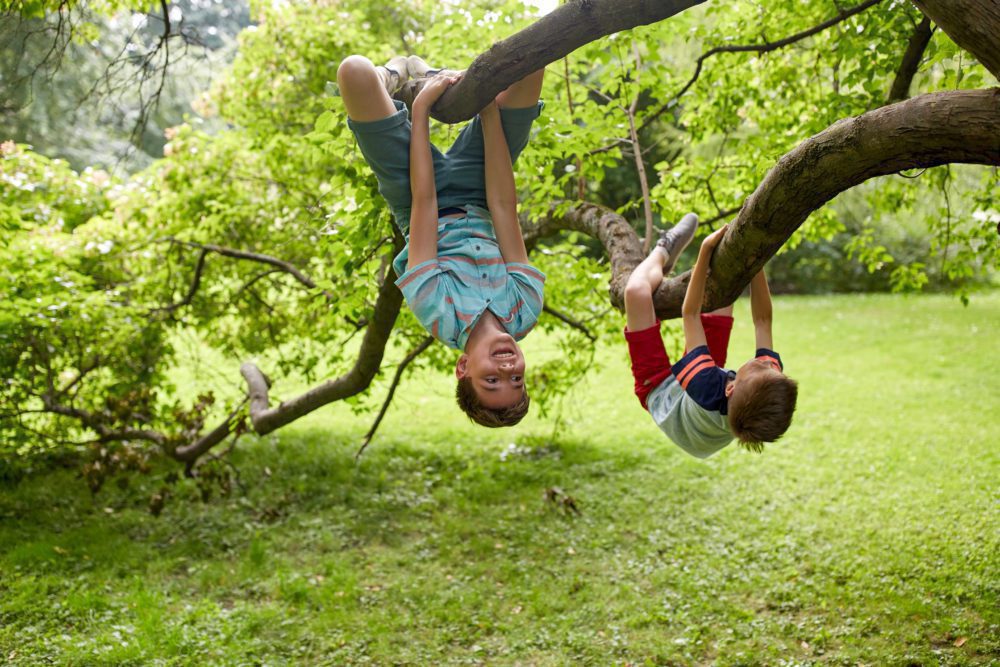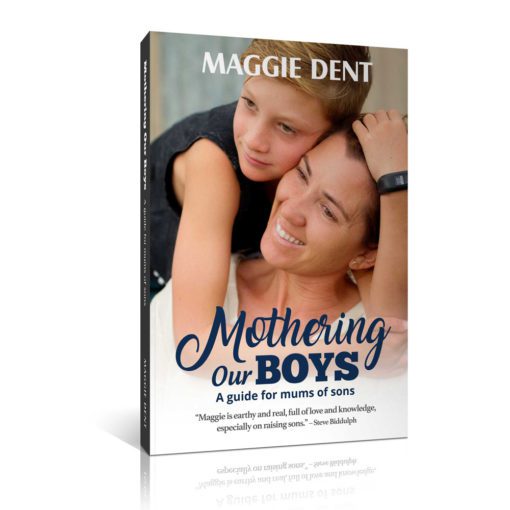Essential Kids Blog, Maggie in the Media, Posts for Parents, Raising Adolescents, Raising Boys
Why I’m so worried about the cost of a lost boyhood for our teenage sons

Like toddlerhood, adolescence is such a paradoxical time in our children’s lives and there are many things about it that parents dread as their kids enter their tween and teen years.
At the same time as we know they will grow in independence, capacity and sheer physical strength during this stage, many of us find ourselves wondering is my child going to stop speaking to me? Will my teenager want to sleep all day? Will they become lazy and unmotivated and disconnected from me?
As a former secondary school teacher and counsellor, and a mum of four now-grown men, I can tell you the answer is YES … probably. Most of that is simply because of adolescent brain development and once we know that (and therefore don’t take it personally), we can be more compassionate parents.
I’m writing this article about boys in particular because I think as a society we are a bit lost in how to help our sons transition successfully from boyhood to manhood. We only have to look at the higher levels of mental illness, deaths from accidents and the suicide statistics to see that our boys need more support in crossing that bridge to healthy manhood.
It is developmentally important for our boys to be physically active, often impulsively and in potentially risky ways. To help them do this as healthily and safely as possible in adolescence, it is essential they have been gifted a real boyhood.
In many ways, today’s style of intensive parenting has created many problems for our boys as they launch themselves into the real world. Arguably, we’re stopping them from being as free and adventuresome as they need to be as boys, and we tend to do too much for them, which can leave them less capable and resilient than previous generations (sure, it also means less ouchies and trips to ED as well!)
One thing that is contributing to the state of massive inertia that some of our teen boys are experiencing has to do with some key experiences that they have often missed in their boyhoods.
Stretching and growing
Most boys have an instinctual drive to be little warriors and adventurers, and this plays out in childhood as superhero play, tree climbing and racing bikes and the like – all activities that encourage them to stretch themselves and test themselves.
When parents hover too nearby however or prevent them completely from making risky choices, boys don’t get the chance to learn the natural consequences of taking risk.
When we paralyse them with fear, it can also crush their innate sense of courage and motivation. Hurting themselves as a consequence of their own poor choice is one way boys learn how to make better choices. It is definitely not a sign of poor parenting, indeed it may be the reverse.
It’s no surprise that many tween and teen boys turn to gaming to satisfy their yearning to challenge themselves in adventuresome ways. It offers them a good hit of the reward brain chemical, dopamine – which, in years gone by they would’ve been more likely to get conquering a physical challenge outside, playing sport or making something.
As parents, the key is offering them enough parental guidance to keep them alive, versus enough freedom to allow them to seize authentic moments of joy and delight that make them glad to be alive.
As they enter their teen years, we must enthuse these acts of ‘stretch and grow’ and encourage them to climb high, learn how to use a power tool safely, create a fire pit and camp overnight with their mates when they ask.
In discouraging this, loving and well-meaning parents can give their sons subconscious messages that they are incapable of managing themselves and that they cannot trust themselves to make choices – especially when they want to stretch themselves.
Brave, competent boys who fail often
Competence builds confidence and that builds the innate autonomous motivation that will start to appear as a boy heads towards 16 years of age. Without these opportunities or enough of them, your son could become the 18-year-old stuck on the family couch, feeling powerless to move his life forward.
Dads and other male father figures are needed, maybe more than ever, to take our boys away from worried mammas and allow them to play vigorously, adventurously and to learn to deal with risk to help encourage their innate bravery. Hopefully boys will see their dads and father figures sometimes make some poor choices so they can realise that making mistakes is a by-product of being human.
Recovering from an injury as a consequence of a poor choice is a huge part of learning about the true nature of resilience. The old ‘man code’ is still conditioning our boys to believe failure is a sign of weakness.
With many opportunities to fail while striving to test oneself, boys can step onto the bridge to manhood with more grit and wisdom.
There will be times you will watch with knuckles clenched while he climbs really high, tackles the skate bowl, sets up jumps for his bike or surfs huge waves. Just take a breath and know that he is learning some vital lessons for his most challenging journey – his bumpy, unpredictable ride from boyhood to manhood.
Image credit: © [Syda Productions] / Adobe Stock – stock.adobe.com




 Manage Membership
Manage Membership

